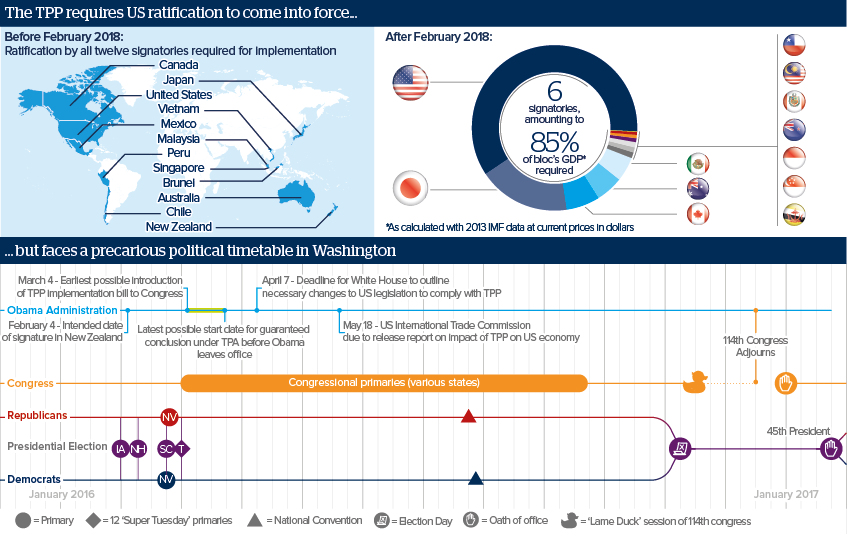Procedure and politics may block US TPP ratification
Election-year considerations may encourage Congress to reject the Trans-Pacific Partnership trade pact in 2016

Source: IMF, US House of Representatives, US Senate, US Trade Representative, Federal Election Commission, Congressional Research Service, Oxford Analytica
Outlook
President Barack Obama wants to secure US TPP ratification as part of his legacy, but the trade pact faces an uphill battle in Congress during an election year.
Under the 'fast-track' trade promotion authority (TPA) passed in April, Congress has up to 90 legislative -- not calendar -- days to approve the deal into domestic US law. Obama intends to sign the pact on February 4, 2016, leaving a narrow window for ratification before the 114th Congress adjourns in December 2016.
If the congressional leadership -- under pressure from wellfunded labour unions and industry groups -- chooses to run out the clock on TPP, it could scupper the administration's hopes of ratifying the trade deal before Obama leaves office.
Impacts
- US rejection of TPP would likely bolster China's economic and diplomatic clout in South-east Asia.
- Democrats facing re-election in 2016 in manufacturing-heavy states may opt to break ranks with the White House on trade legislation.
- Prime Minister Shinzo Abe is likely to outflank TPP opponents and secure Japanese ratification.
- Delays to TPP coming into force may encourage Asian countries to focus on intra-regional free trade agreements, such as RCEP.
See also
- US TPP ratification in 2016 is unlikely - Dec 11, 2015
- US TPP implementation faces major hurdles in Congress - Oct 19, 2015
- More graphic analysis